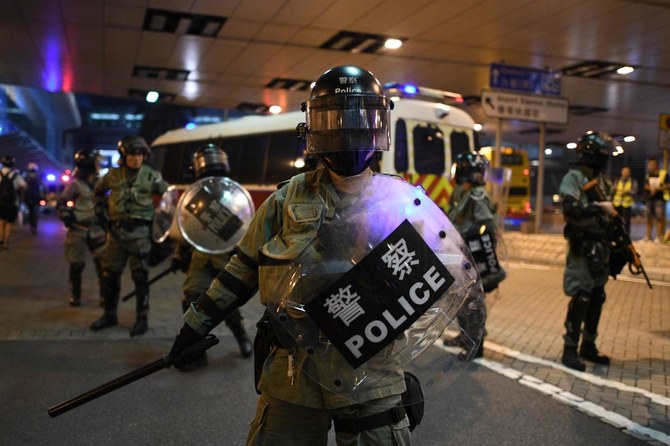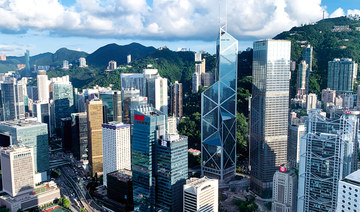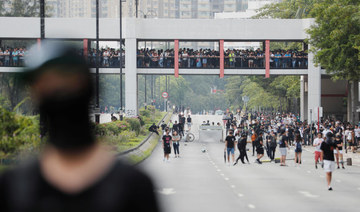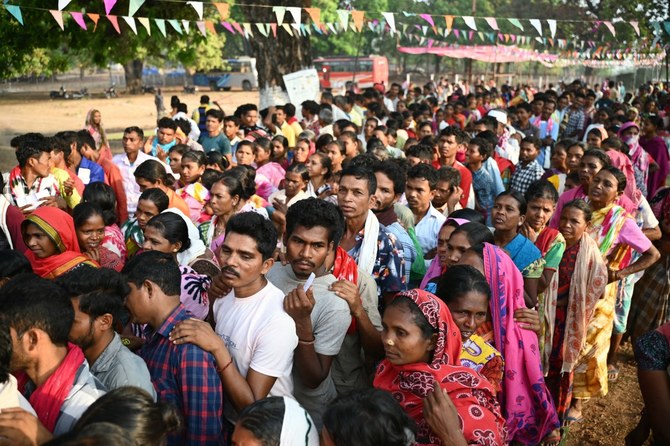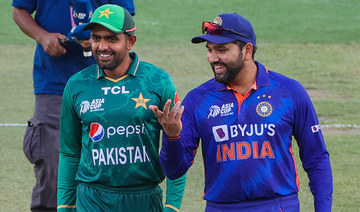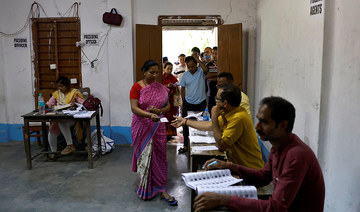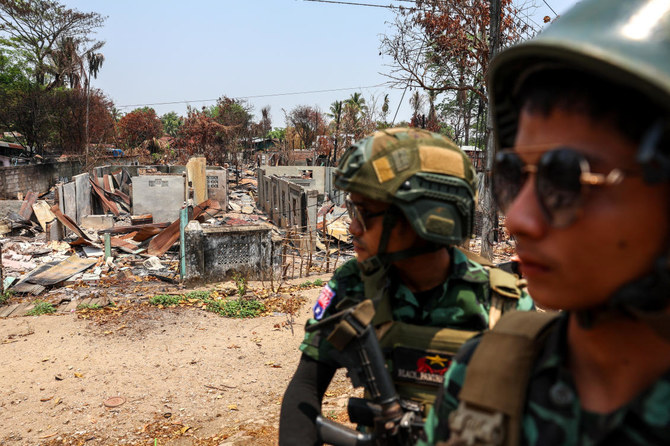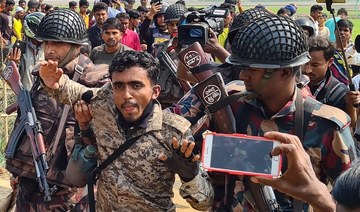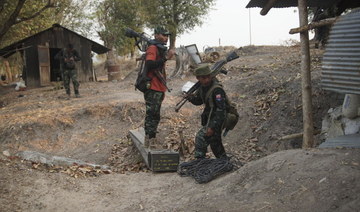HONG KONG: A Hong Kong court has granted an injunction to ban anyone from blocking or damaging areas used to house married police officers and other disciplined services that have been targeted in more than four months of anti-government protests.
The move is the government’s latest step to try to check the protests following Chief Executive Carrie Lam’s decision earlier this month to invoke colonial-era emergency measures to outlaw face masks, used by protesters to hide their identity and withstand tear gas.
Lam said on Tuesday that while every means should be considered to quell unrest, concessions to the protesters in the face of escalating violence would make matters worse.
“I have said in many occasions that violence will not give us the solution. Violence would only breed more violence,” Lam told a news conference. Demonstrators have besieged and hurled petrol bombs at police housing areas in the Chinese-ruled city, damaging facilities, police said in a statement on Tuesday.
The injunction on protests in police housing areas also prohibits the obstruction of roads and bans people from shining laser pens or other flash lights at police facilities. In August, after protesters mobbed the Hong Kong airport and brought it to a standstill, the High Court issued an injunction banning anti-government protesters from targeting what is one of the world’s busiest airports.
Protesters, many masked and wearing black, have thrown petrol bombs at police and central government offices, stormed the Legislative Council, blocked roads to the airport, trashed metro stations and lit fires on the streets of the Asian financial center.
Police have responded with tear gas, water cannons, rubber bullets, bean-bag rounds and several live rounds, warning the crowds beforehand with a series of colored banners. The government refuses to concede to the protesters’ demand for an independent inquiry into accusations of police brutality. Police, who have beaten protesters on the ground with batons, say they have shown restraint.
Cruz said there was “overwhelming bipartisan support” in the US Congress for the people of Hong Kong and called on the Senate to pass the Hong Kong Human Rights Act to allow sanctions on those who undermine the city’s autonomy. The Hong Kong and Chinese governments have repeatedly warned foreign governments not interfere in the territory’s internal affairs or fan anti-China sentiment.
District council elections due on Nov. 24 will be a key gauge of public sentiment. Rumors have swirled that the government might postpone the election due to the protests. Lam said the government wanted to hold “fair, open, honest” elections, although attacks on offices of pro-establishment politicians by protesters had cast a shadow over the vote.
Hong Kong’s leader on Tuesday hit back at a US senator who said the city is becoming a police state, a day after a massive rally called on Washington to punish Beijing over sliding freedoms in the international hub.
The territory has been battered by more than four months of pro-democracy protests — and increasingly violent clashes with the police — with Beijing-backed Chief Executive Carrie Lam unable to resolve the unprecedented crisis.
Critics have accused her government and the police of heavyhandedness, and some US lawmakers — including Senator Josh Hawley — are trying to pass legislation that would make Hong Kong’s special trading status subject to annual reviews of its political situation.
“Some foreign politicians... still think this is a peaceful protest that fights for human rights and freedom, or even said they have not seen any violence,” Lam said at a press conference.
“This is total ignorance of the truth.” Hawley, a sponsor of the Hong Kong Human Rights and Democracy Act, had said during a weekend visit to the city that it was “in danger of sliding toward a police state.”
Earlier, fellow Republican senator Ted Cruz had accused the Chinese government of trying to impose “dictatorship” on Hong Kong.
Lam said the American lawmakers had “preconceived views” about Hong Kong, and Hawley describing “Hong Kong as becoming a police state is totally irresponsible and unfounded.”
The Missouri senator stood by his statement. “I chose the words ‘police state’ purposely — because that is exactly what Hong Kong is becoming. I saw it myself,” Hawley tweeted.
“If Carrie Lam wants to demonstrate otherwise, here’s an idea: resign.” The Hong Kong protests were sparked by opposition to a now-scrapped proposal by Lam’s government that would have allowed extraditions to the mainland, but have since transformed into a wider movement for democratic reform — including universal suffrage — and police accountability.
The semi-autonomous hub enjoys freedoms under the terms of its 1997 handover to China by Britain that critics say are being eroded because of Beijing’s tightening grip on the city.
While the demonstrations have largely been peaceful, there have been increasingly violent and frequent clashes between the police and hardcore protesters.
Protesters have accused the police of brutality and excessive tactics, while authorities say they are acting lawfully in a bid to end violence by demonstrators — who have vandalized infrastructure like subway stations and businesses perceived to be pro-Beijing.
The protests began in opposition to a now withdrawn extradition bill that would have allowed suspects to be sent to China, but have broadened into a pro-democracy movement amid fears that Beijing is undermining Hong Kong’s freedoms. Britain returned Hong Kong to China in 1997 under a “one country, two systems” formula, which gives it wide-ranging autonomy and freedoms not enjoyed on the mainland.
Tens of thousands of mostly young pro-democracy activists pleaded for help from the United States on Monday evening in the first legal protest since the mask ban took effect on Oct. 5. US Senator Ted Cruz spoke in support of the protest movement on the weekend, in the highest profile visit by a US politician since the unrest broke out.



